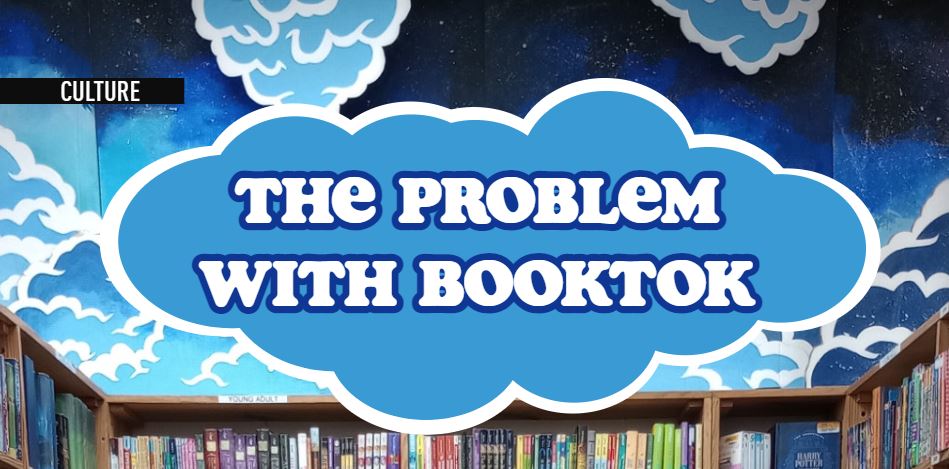
A wave of nostalgia pours over me as I pore over the pages of my copy of the Three Musketeers by renowned French novelist Alexandre Dumas. The copy is ripped in several places, the cover is creased, there are several crinkles and dog-eared pages within, but it holds immense sentimental value to me. On the title page of the book, right below “The Three Musketeers by Alexandre Dumas” lays the messy, large scrawl in blue ink, written by a fourteen-year-old boy in the late 80s of Kashmir.
That boy was none other than my father. Often described as a bookish and quiet young man, my father’s love for reading passed from him to me. Books have transformed and developed me as a person, they have provided a medium to examine my own heritage, to reassess and analyze my political beliefs, to observe and imbibe other cultures and societies, to interpret and enjoy. It is an inheritance of sorts that I greatly value; an inheritance of the worlds of Tolkien and Austen, a legacy of Tolstoy and Dostoevsky, memories of Plato and Socrates, and towards the East. A love of the Muslim scholars of old, of the poets of my homeland, of the trashy romance novels I consider one of my favorite guilty pleasures to this day.
Literature is the pinnacle of art to me. From delving into a society’s literature, I can learn and understand ideological differences, social and cultural disparities, economic issues, gendered pains, and so much more. In my reading list lies lists of various cultures whose literature I want to explore: Japanese, Russian, Egyptian, Urdu. That is the beauty of reading: it is an interpersonal outlook. A personal, intimate brush with the mind of another person. It is a form of art that transcends visual and aural mediums; an interpretation that is up to the reader themselves. The agency, the autonomy, the universality of literature and the simple enjoyment of reading is what greatly endears it to me.
Yet it pains me to observe the general metamorphosis of newer generations towards this legacy of reading. From enjoyment and intellectual development, reading seems to have been commodified into an aesthetic. It seems that rather than reading Dostoevsky for genuine pleasure and the intrigue of his admittedly at times difficult to understand writing, it has been transformed into a method of posturing as some sort of pretentious intellectual. Books are now being marketed through tropes commonly found in fanfiction: ‘enemies to lovers’, ‘friends to lovers’, ‘angst’, ‘slowburn’, etc. And this form of marketing has begun to sway and produce a new audience, particularly on TikTok, who have created a fandom for ‘reading’, called ‘BookTok’.
One can argue that there are positives to this outcome of literature as an aesthetic. It may encourage an influx of new readers to a hallowed tradition as old as human literacy and sentience. But I argue that it does nothing but subvert that tradition by propagating two concerning issues: the commodification of literature and encouraging mass-consumerism. Both lead to declines in critical thinking and an identity reliant on fluctuating trends.
The emergence of social media in the last decade has generated various discussions and debates about the usage of it as a tool for marketing, and particularly the encouragement of commodification of the self. Social media content creators are not defined by their unique individuality as a person but rather by what they can ‘offer’ audiences, what their ‘aesthetic’ is, and what trends they keep up with. The constant overwhelming nature of social media’s rapid shifts and changes has been described as alarming by many observers.
This commercialism has transformed the publishing industry, with some TikTok creators focusing on eagerly unpacking large boxes of books, demonstrating their neat and ‘aesthetic’ shelving of the books. Many of them being hard-cover (which are notoriously expensive), the costs ranking up to hundreds and hundreds of dollars. Or the perfectly planned mood boards of the ‘aesthetic’ of a reader, placing oneself in the role of a trendy and chic intellectual— well-dressed, good-looking, and smart, what a perfect combination!
This aesthetic of reading is disseminated all throughout social media. From TikTok’s quotes pulled from certain books to Instagram tags advertising certain tropes a book has to Pinterest ‘aesthetics’ and mood boards of a perfectly polished (or not, depending on the trend) of the well-read, intellectualized individual, with perfect clothes and a reference to every intelligent-sounding book they’ve ever read, holding a cup of black coffee and droning on about Oscar Wilde and trying to seem as smart as possible. It’s either that or the reader obsessed with dark romance and young adult fiction and describes themselves as being ‘in love with fictional men’. Said fictional men and their relationships that fall into concerning notions of abuse and toxicity, often targeted towards impressionable young girls whose imagination of romance circulates around these mediocrely written books, an exposure generated by social media.
The publishing industry has taken complete advantage of this new cycle of trends to market and propagate authors. Authors now announce their books not based on any sort of legitimate well-written material but on a variety of tropes: “My book has enemies to lovers!” “My book has slowburn!”, “My book has this!”, denigrating their own hard work painstakingly crafted through hours of rumination, editing, and writing to simply some box or category. Their book has to be in trend with what the people want on social media. If it’s not these niche categories and boxes that the trends like right now, then it’s not worth it. If the male lead doesn’t have black hair, it’s not worth it. If the male lead isn’t a quiet, brooding anti-hero, then it’s not worth it.
There is a legitimate lack of genuine engagement with reading as a craft in terms of critical thinking and just simple enjoyment. Classics authors like Jane Austen and the Bronte Sisters are denigrated to once again, tropes, of ‘angst’, of ‘enemies to lovers’, the universality stripped from their books as they are then further reduced to ‘Victorian’ and ‘Dark Academia’ aesthetics. Modern contemporary works are produced for a specific audience and marketed based on that cycle of trends. Social media is more focused on the mass consumption and hoarding of hundreds of books (that most likely go unread and reinforce classist notions of a ‘good’ reader having all the books, something that many cannot afford) and attaching an identity to a ‘pretty’ aesthetic of reading. Why don’t you have the latest, nicest copy of the book trending on TikTok?
Who are you if you cannot consume? Who are you if you are not able to consume?
This decline in media literacy is a phenomenon that needs to be examined, a trend that has devastating impacts on the future of our society as a whole if our current and future generations of youth view intellectual pursuits simply as a manner of being ‘perceived’ as intelligent rather than further interpersonal development and building their identities off of consuming and buying.

Comments